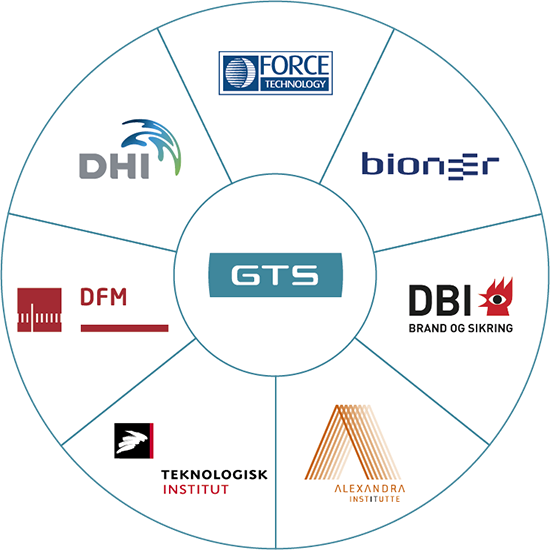DBI is one of Denmark’s seven GTS institutes (approved technological service) with the task of supporting innovation and growth in small and medium-sized companies. This is done by building up the technological infrastructure of test facilities, laboratories and professional competence in Denmark.
In addition, the GTS role is to follow technological developments at home and abroad, develop new technological knowledge in collaboration with universities and research institutes and ensure knowledge sharing to Danish companies. In this way, the GTS institutes act as the link between the research environment and the business community, pushing the limits of what companies can do on their own.
The advantage for small and medium-sized companies in particular is that they get help solving specific problems and easier access to relevant technological knowledge, which they can use to develop innovative products and processes. GTS institutes also focus on the development of methods and knowledge to support the Danish business community as it transitions to greener ways of working. Thus, GTS also fulfils an important social role in the area of sustainability.
Independent institutes
GTS institutes are independent companies operating under market conditions. Since they also work in the service of society, their DNA nonetheless requires impartiality. For the same reason, DBI has several accredited departments with quality assurance systems that ensure that all companies have the same fair conditions in their collaboration with DBI. Moreover, the way in which the GTS institutes support business innovation and growth must not be detrimental to competition.
Research and development activities
As a GTS institute, it is possible to apply for public project funds – called performance contracts – to be used for research and development activities at the leading edge of market needs. The Danish Agency for Education and Research enters into performance contracts and oversees the GTS institutes. DBI uses the support as a basis for cooperation with companies and private foundations.
The purpose of the activities is to develop new technological competence and services that are expected to be of significance to the Danish business community, and thus make research-based knowledge and technology applicable to a broad group of Danish companies.
In addition to the commercial aim for the Danish business community, the project funds must also result in climate-friendly solutions that live up to the green agenda that prevails in society.
What does it take to become a GTS institute?
In order to be approved as a GTS institute, a number of requirements must be met, for example, that the company is non-profit and works within an area of great importance to the Danish business community. Furthermore, the company must have a high level of professionalism, be independent of political and economic interests and have a reassuring financial and organisational basis. Excess earnings from the GTS institutes are used exclusively for new research, development and innovation.
Denmark’s seven GTS institutes:


Contakt:
Carsten Damgaard
R&D Director
+45 51 64 79 35
Danish companies have access to more than 200 laboratories and testing, demonstration and development facilities at the GTS institutes. The facilities can be found here: teknologiskinfrastruktur.dk